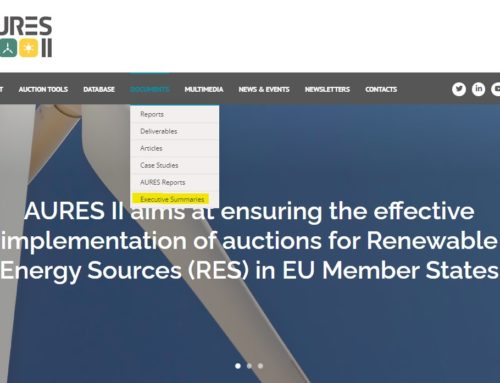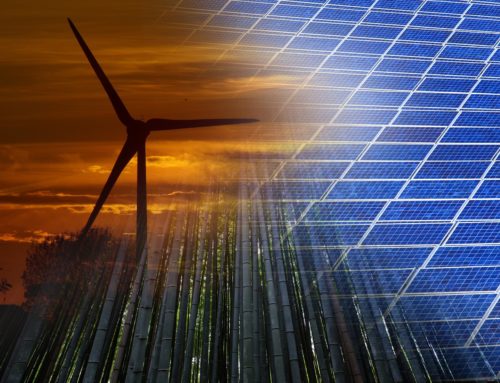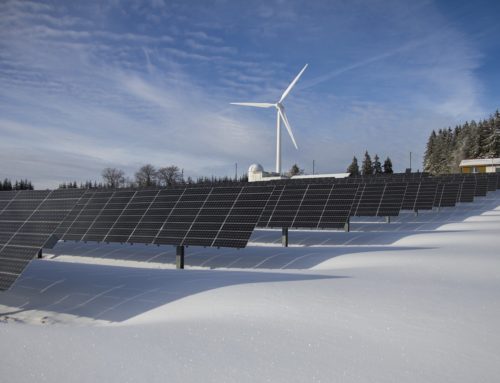The second regional workshop of the AURES II project took place on 22th November in Vienna. The aim of the workshop was to disseminate our current intermediate results of the project, with a regional focus on Austria and the member states of the Energy Community as well as a topical focus on the impacts of RES auctions on renewable energy cooperatives. Besides their general importance, the topics discussed are of particular interest to Austria, since the country is expected to incorporate in its Green Electricity Act the same sort of “competitive bidding process”, as required by the EU State Aid Guidelines. Furthermore, with the recently observed decrease in renewable wind power plants in the neighbouring Germany, the workshop served as a discussion forum for a critical reflection on the potential contribution of auctions on the development of wind energy.
Along with AURES II project members, the workshop attracted more than 20 non-AURES II participants: representatives of Austrain and German energy companies (RP Global, Wien Energie), renewable energy associations (IG Windkraft, Wind Europe, Österreichs Energie) and cooperatives (Bündnis Bürgerenergie e.V., Ourpower), international organisations (Energy Community Secretariat), as well as the Croatian Market Operator Hrote.
The event was opened by Gustav Resch, senior researcher at the Energy Economics Group, TU Wien and by Vasilios Anatolitis, the AURES II project leader from Fraunhofer. Following, the first session focused on case studies on the implementation of auctions, and on the lessons learnt from these examples. Notably, data from the upcoming AURES II AuctionAn auction is a market mechanism with the aims of allocating... Data Base (which is expected to be published by January 2020), show that Member States are experimenting with a multitude of different auctionAn auction is a market mechanism with the aims of allocating... designs, leading to a very inconsistent development of auctions within Europe. Ann-Katrin Hanke from Takon GmbH presented a critical assessment of the results of German RES auctions, highlighting how those regarding onshore wind power suffered of very low competition and thus lead to a stagnant price development in recent years. Hanke strongly emphasized that one of the remedies currently discussed, i.e. the so called “80% rule” (a rule by which independent of the number of participants the number of winning bids would never exceed 80% of the submitted ones), shall necessarily be discarded as it lowers the incentives to participate in the market.
In the second session recent developments in Austria, Hungary and in the Energy Community were discussed. Albania, Montenegro, North Macedonia and Hungary have already implemented RES auctions, with some promising results; the others are currently proceeding with their development and implementation. However, according to Gabriela Crespu from the Energy Community Secretariat, the access and cost of capital remains a very critical factor that prevents a stronger RE deployment.
Finally, in the third session, the impact of RES auctions on citizen energy was examined. The representatives of the energy cooperatives were very critical of RES auctions such as implemented in Germany and consider them as a major barrier for community cooperatives, as well as for the RE deployment in general. Different measures both inside and outside of the auctions framework to improve prospects for community energy projects were discussed. However, Hugo Lucas Porta from IDEA strongly questioned the possibility of adapting the rules so that energy cooperatives can participate in competitive auctionAn auction is a market mechanism with the aims of allocating... processes. He states: “If auctions is football, the large producers such as Enel Vatenfall, Acciona would be the football teams, while community power is basketball. If you put a team of 11 basketball players to play in the football Champions league, they do not have a chance to win at all! And if you decide to change the design of football matches so that they will be played in a small-sized pitch, in four times of 10 minutes, etc. As far as you call it football because you kick the ball to score, football teams will still always win, and the worse is the trade-off you pay. No one is interested in watching that kind of football”.
A Feed-in premium with guaranteed access to this supportJust like administratively set support, auction-allocated su... scheme for energy cooperatives, but with a remuneration level linked to auctionAn auction is a market mechanism with the aims of allocating... results, could be a possible solution for this dilemma. Because in the end, as workshop host Gustav Resch claims: “For an effective and efficient deployment of renewable energy, we need both, the citizen participation via community cooperatives as well as large scale producers”.




